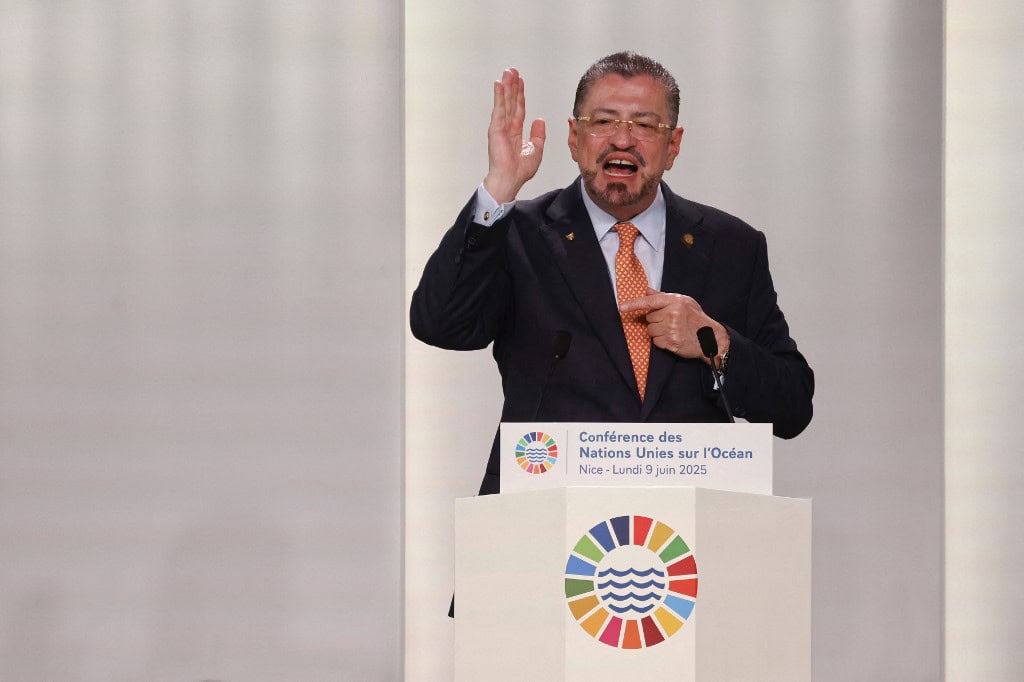Costa Rica is taking center stage at the Third United Nations Ocean Conference (UNOC3) in Nice, France, from June 9 to 13, co-hosting alongside France to drive action on ocean conservation. Led by President Rodrigo Chaves Robles, the Costa Rican delegation is advocating for sustainable ocean use, stronger marine protections, and a global ban on new fossil fuel exploration to meet Sustainable Development Goal 14 (SDG 14), which focuses on life below water.
The conference, themed “Accelerating Action and Mobilizing All Actors to Conserve and Sustainably Use the Ocean,” comes at a critical time. Over 50% of marine species face extinction risk by 2100, coral reefs are bleaching, and sea temperatures are hitting record highs. Costa Rica, having protected 30.3% of its marine territory—over 161,000 square kilometers—surpassing the global 30% by 2030 target, is urging other nations to follow suit.
President Chaves, alongside French President Emmanuel Macron, is leading discussions with heads of state, scientists, and civil society. A key focus is the call for an international fossil fuel non-proliferation treaty. On June 8, World Oceans Day, 145 parliamentarians from 39 countries issued a joint statement pressing France and Costa Rica to champion this initiative.
The lawmakers warned that new coal, oil, and gas projects are major drivers of ocean warming, acidification, and rising sea levels, which threaten marine ecosystems and coastal communities. The ocean, they noted, absorbs 30% of CO₂ and 93% of human-generated heat, making it a critical buffer against climate change.
The scientific community has echoed this urgency. At the One Ocean Congress last week, experts called for immediate action to protect marine ecosystems, halt destructive seabed activities, and ban new fossil fuel exploration. They also emphasized tackling illegal fishing, plastic pollution, and shipping emissions while promoting sustainable ocean-based food systems. “The future of our oceans depends on decisions made now,” said François Houllier, executive director of Ifremer and co-chair of the Congress’s International Scientific Committee.
Costa Rica’s leadership builds on its deep-sea conservation efforts. President Chaves has endorsed a moratorium on deep-sea mining, stating, “We need a pause until we have enough science to use the marine environment rationally and prevent tragedy.” This stance aligns with the conference’s push for the High Seas Treaty (BBNJ Agreement), adopted in 2023, which aims to protect marine biodiversity in international waters.
The conference will also address funding gaps. Protecting and restoring marine ecosystems requires $175 billion annually over the next five years, yet only $10 billion was allocated from 2015 to 2019. UNOC3 aims to spark new “blue finance” mechanisms, like ocean bonds and debt-for-nature swaps, to support vulnerable coastal states.
Local voices are also making an impact. Costa Rican scientists will join a panel on June 10, hosted by the Schmidt Ocean Institute, to discuss how deep-sea research has advanced the country’s marine protections. Meanwhile, environmental groups like the Center for International Environmental Law are advocating for a fossil-free ocean, highlighting the damage from offshore oil and gas activities.
As UNOC3 unfolds, Costa Rica is calling for concrete commitments over promises. The conference will wrap up with the Nice Ocean Action Plan, aiming to turn global ambition into measurable progress. For a nation that has long prioritized environmental stewardship, this is a chance to lead by example and rally the world to act.






